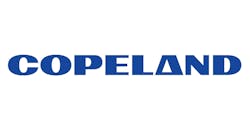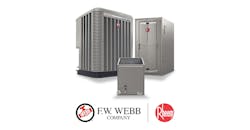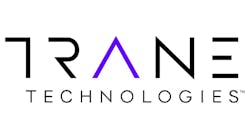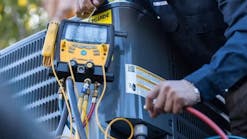HVAC System Thermostat Wars: We Need to Provide Education, Not Seek Legislation
There’s a battle brewing between the HVAC and home security industries with regards to the installation of thermostats as part of “smart home” systems. Inevitably, more home security and home automation companies are including indoor comfort in their “total home control” offerings. From the consumer’s perspective this makes plenty of sense.
We’ve all seen the commercials of the woman sitting on the plane, setting the lighting, appliances, and — yes — temperature of her home from her smartphone. It’s our future, and looking at it objectively, it also makes sense. Some HVAC product manufacturers are now offering thermostats tied to phone apps that control home comfort. The Nest Learning Thermostat is one such example.
So what’s the issue?
In several states and nationally, HVAC industry organizations are pushing for legislation to prevent home security and other non-HVAC companies from replacing thermostats with products that communicate with security and other home control systems.
The rationale is that some HVAC systems use proprietary protocols and special communicating thermostats to control intelligent equipment that don’t follow standard thermostat configurations, protocols, or wiring. Therefore they assert only HVAC companies should be installing or replacing thermostats.
So what are the flaws in this thinking?
For starters, the last thing we need is more regulations. As an industry let’s be careful what we wish for when we ask for government intervention to fight our battles. Remember, the knife cuts both ways! This is an important issue, but it’s not necessarily a code or safety problem -- it’s an education issue.
The home security and automation industries also require technician training and licensing. Are there poorly trained techs and fly-by-nights in these industries? Most certainly.
The truth is more than 95% of thermostat installations use standard wiring configurations and can be easily replaced by the controls used in the security and home automation industry. In fact, homeowners have been able to buy thermostats at their local DIY centers and change them out themselves for decades. I’ve not yet heard of an equipment warranty not honored when the stat was replaced by the homeowner.
The real questions are what should be done about mechanical equipment that require special thermostats, and who is responsible if they’re wired incorrectly, resulting in a fried control board? I don’t believe the answer is new legislation. In fact, if the government is true to form, it will just make it worse.
Recently in Texas, when those opposing alarm companies replacing thermostats tried to introduce legislation to keep them out, it backfired. The legislation was shot down, and instead replaced with a new bill pushed by the telecommunications industry which removes thermostats from the definition of HVAC equipment regulated under HVAC licensing laws.
The bill passed both the Texas House and Senate and will likely be signed by the governor shortly. The law of unintended consequences reared its ugly head, and with this precedent, there’s a very good chance similar legislation will be introduced and passed anywhere opposition is met.
Let’s face it, we can’t build a fence around our industry. The only way to win this battle is in the marketplace. If you install intelligent thermostats that could be messed up by a third party, make sure you let your customer know about the potential issues upfront, and keep reminding them. Placing stickers on equipment and thermostats will help. Remind them of how their system is special, and how it’s dangerous to let unqualified people touch it.
Education is the key here.
If customers do want a home automation system or feature on their thermostat, get educated on how to provide it yourself, and/or how to work with their alarm or automation company. With regards to the home automation marketplace, is there an opportunity for you to provide these services in a proactive way? You can either add the skills in-house, partner with a third-party company, or create a referral arrangement.
When it comes to dealing with issues like this, whether it’s home automation, home performance, or other industries that offer home services, you’ll need to decide where to take your company, and how to respond to the growing number of issues that will inevitably crop up as the home and all of its systems become more integrated. Bottom line: You can view these situations as threats or as opportunities. Either way, it’s your choice. But education is almost always a better answer than legislation.
Dominick Guarino is CEO of National Comfort Institute (NCI), (www.nationalcomfortinstitute.com), the nation’s premier Performance-BasedTM training, certification, and membership organization, focused on helping contractors grow and become more profitable. His email is [email protected]. For more info on performance-based contracting, go to WhyPBC.com or call NCI at 800/633-7058.










